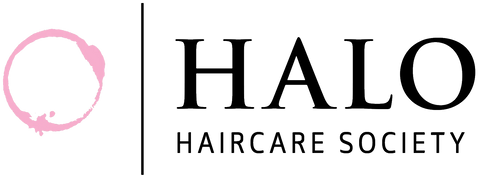The Ultimate Guide to Vitamins, Minerals, and Nutrients for Strong, Healthy Hair
Healthy, luscious hair doesn’t just depend on great products; it starts from within. Vitamins, minerals, and essential nutrients play a big role in the growth, strength, and shine of your hair. Today, we’re diving into which nutrients your hair needs, where to get them, daily recommended amounts, and how to pair foods for optimal absorption.
1. Protein
- Why it’s important: Protein is the foundation of hair structure, making up keratin, the fibrous protein that keeps hair strong and resilient. Insufficient protein can lead to hair that’s weak and prone to breakage.
- Recommended amount: Aim for 0.8 grams of protein per kilogram of body weight.
- Sources: Eggs, lean meats (chicken, turkey), fish, dairy products, legumes, nuts, and seeds.
- Best paired with: Vitamin C-rich foods like bell peppers or oranges to aid in amino acid absorption.
2. Iron
- Why it’s important: Iron helps red blood cells carry oxygen to hair follicles. Without enough iron, hair growth can slow down, leading to hair loss.
- Recommended amount: 8 mg for men, 18 mg for women daily.
- Sources: Red meat, spinach, lentils, pumpkin seeds, quinoa, and tofu.
- Best paired with: Vitamin C (think strawberries, citrus, or bell peppers) for better iron absorption.
3. Vitamin C
- Why it’s important: Vitamin C boosts iron absorption and is an antioxidant that protects hair follicles from oxidative stress, which can weaken hair.
- Recommended amount: 65-90 mg daily.
- Sources: Citrus fruits, strawberries, bell peppers, and leafy greens.
- Best paired with: Iron-rich foods like spinach and lentils to maximize iron absorption.
4. Vitamin D
- Why it’s important: Known as the “sunshine vitamin,” vitamin D supports hair follicle health, and a deficiency has been linked to alopecia (hair loss).
- Recommended amount: 600 IU daily for most adults.
- Sources: Sun exposure, fortified foods (like milk and orange juice), fatty fish, and mushrooms.
- Best paired with: Healthy fats like avocado or olive oil to help with vitamin D absorption.
5. Vitamin E
- Why it’s important: Vitamin E is a powerful antioxidant that protects cells, including those in the scalp, from oxidative damage.
- Recommended amount: 15 mg daily.
- Sources: Nuts (especially almonds), seeds, spinach, and avocado.
- Best paired with: Healthy fats, as vitamin E is fat-soluble, so pairing it with nuts or olive oil is ideal.
6. Biotin (Vitamin B7)
- Why it’s important: Biotin supports keratin production and promotes thicker, stronger hair. A deficiency may lead to hair thinning and breakage.
- Recommended amount: 30 mcg daily.
- Sources: Eggs, nuts (particularly almonds), salmon, sweet potatoes, and avocados.
- Best paired with: Protein-rich foods, as they provide the amino acids needed to build keratin.
7. Zinc
- Why it’s important: Zinc helps with tissue growth and repair and keeps the oil glands around the hair follicles functioning properly.
- Recommended amount: 11 mg for men, 8 mg for women.
- Sources: Oysters, beef, pumpkin seeds, chickpeas, and lentils.
- Best paired with: Vitamin C-rich foods like citrus to improve zinc absorption.
8. Omega-3 Fatty Acids
- Why it’s important: Omega-3 fatty acids nourish hair follicles, keep the scalp hydrated, and add elasticity to hair, reducing breakage.
- Recommended amount: No established daily intake, but about 250-500 mg of combined EPA and DHA is recommended.
- Sources: Fatty fish (salmon, mackerel), chia seeds, flaxseeds, walnuts, and seaweed.
- Best paired with: Antioxidants like vitamin E for additional scalp protection.
9. Vitamin A
- Why it’s important: Vitamin A promotes healthy sebum production, an oily substance that keeps the scalp moisturized.
- Recommended amount: 700-900 mcg RAE (Retinol Activity Equivalent) daily.
- Sources: Carrots, sweet potatoes, spinach, and kale.
- Best paired with: Healthy fats like olive oil or avocado to improve absorption, as vitamin A is fat-soluble.
10. Folic Acid (Vitamin B9)
- Why it’s important: Folic acid promotes healthy cell growth, essential for rapidly dividing cells like those in hair follicles.
- Recommended amount: 400 mcg daily.
- Sources: Leafy greens, lentils, beans, and fortified grains.
- Best paired with: Vitamin C-rich foods to enhance absorption.
11. Magnesium
- Why it’s important: Magnesium helps with protein synthesis and supports hair growth by reducing stress and inflammation in the scalp.
- Recommended amount: 400-420 mg for men, 310-320 mg for women.
- Sources: Spinach, pumpkin seeds, almonds, and avocado.
- Best paired with: Calcium-rich foods, but avoid taking magnesium and calcium supplements together as they can compete for absorption.
Key Food Pairing Tips for Optimal Absorption
- Iron + Vitamin C: Spinach salad with strawberries or lentil soup with a squeeze of lemon.
- Vitamin D + Healthy Fats: Salmon with a side of avocado or mushrooms cooked in olive oil.
- Vitamin E + Healthy Fats: Almonds with yogurt or spinach sautéed in a little olive oil.
- Biotin + Protein: Egg on whole grain toast or salmon and avocado bowl.
Sample Daily Diet for Healthy Hair
- Breakfast: Greek yogurt topped with strawberries, almonds, and a sprinkle of chia seeds.
- Lunch: Spinach and chickpea salad with red bell peppers, topped with grilled chicken and a lemon dressing.
- Snack: Handful of pumpkin seeds and an orange.
- Dinner: Grilled salmon with a side of sweet potato and a serving of sautéed leafy greens.
With the right nutrients and thoughtful food pairings, you’re setting up a strong foundation for your healthiest, most vibrant hair yet. Remember, consistency is key, and the best results come from making these nutrients a regular part of your balanced diet. Here’s to your journey towards stronger, healthier hair from the inside out!




